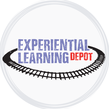Experiential Learning Importance: 9 Benefits of Experiential Learning in Classrooms and Homeschools8/31/2021
What is experiential learning importance? What are the benefits of experiential learning? Why bother spending the time to learn a new teaching style?
I am often asked how to get colleagues on board with experiential learning. This is an important question. I taught at an experiential school for 10 years. It was tough when there was a staff member or two that didn't agree with or understand the experiential philosophy. Experiential learning is a profound and life-changing teaching strategy with a laundry list of benefits attached, but working with those that are resistant to the craft can be draining, leaving you with little choice but to keep on teaching in a way that you don't feel is effective for your students or fulfilling to you. So how can you work with those that are resistant to experiential learning? What can you do? What can you say?
5 Comments
What is experiential learning in the classroom, and what does an experiential learning classroom look like? Experiential learning can take place anywhere, including a classroom, and there are particular ways to make experiential learning in a classroom or homeschool learning environment more conducive than others.
Interest-based learning is when students identify their interests and use those interests to drive and lead learning experiences.
The purpose of designing learning experiences around interests is to encourage an intrinsic motivation to learn and inspire a passion for learning. This happens by tying learning experiences with topics and questions that are meaningful, relevant, and interesting to students. Personalize learning through interest-led project-based learning. |
Blog IntentTo provide innovative educational resources for educators, parents, and students, that go beyond lecture and worksheets. AuthorSara Segar, experiential life-science educator and advisor, curriculum writer, and mother of two. Categories
All
|





 RSS Feed
RSS Feed